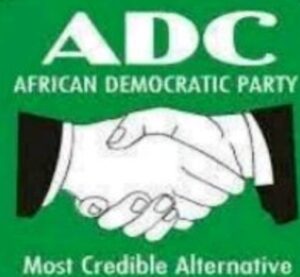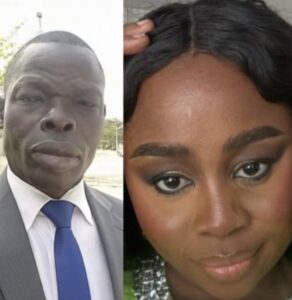2027: ADC Faces Internal Rift Amid Alliance With Anti-Tinubu Forces
2027: ADC Faces Internal Rift Amid Alliance With Anti-Tinubu Forces

Tensions have emerged within the African Democratic Congress (ADC) following reports that the party has been adopted as a political vehicle by former Vice President Atiku Abubakar and Labour Party’s 2023 presidential contender, Peter Obi, for a joint challenge against President Bola Tinubu in the 2027 elections.
In preparation for this new political coalition, the ADC discreetly revised its constitution to provide equal opportunities for incoming members—a move interpreted by insiders as an effort to accommodate high-profile political figures. However, the decision has not gone down well with all existing members, particularly at the state level, where some party leaders have resisted any move to displace them in favor of newcomers.
While some ADC officials welcomed the opportunity for restructuring and national relevance, others voiced concern that the coalition could undermine their longstanding positions.
ADC’s Growing Profile
Formed in 2005, the ADC has remained a minor player on the national scene until recently, when discussions about a political alliance ahead of 2027 thrust it into the spotlight. The coalition talks gained traction amid ongoing conflicts within both the Peoples Democratic Party (PDP) and the Labour Party (LP).
Despite this increased attention, the ADC continues to struggle with a limited national presence. In several southern states, including regions in the South-South and South-East, the party reportedly lacks solid representation. Its electoral impact has also been modest, with a few legislative victories at both state and federal levels, including three National Assembly seats and two seats in the Oyo State House of Assembly during the 2019 general elections.
Sources say the coalition settled on the ADC after concerns emerged over President Tinubu’s influence in the initially preferred Social Democratic Party (SDP), whose leadership has rejected the idea of any external takeover. In contrast, ADC National Chairman Ralph Nwosu has openly embraced the coalition, positioning the party as the flagship for anti-Tinubu forces.
Mixed Reactions Among ADC State Leaders
While some state leaders have pledged support for the coalition and readiness to make way for new members, others are standing firm against being sidelined.
In Ogun, Dr. Femi Soluade confirmed that changes within the party’s structure—from the national to the state levels—were necessary to accommodate different interest blocs in the coalition. Leaders in Rivers, Niger, Bauchi, Kano, Kaduna, and Kebbi states echoed similar sentiments, with many saying they were ready to give up their posts for the sake of national progress.
ADC leaders in these states stressed that inclusion and restructuring were essential for the coalition’s success, with some referencing the party’s symbol—a handshake—as a sign of openness and unity.
However, resistance remains strong in several quarters. Leaders in Osun, Plateau, Delta, Benue, and Gombe have rejected any plans to impose new leadership without due process. They emphasized that while coalitions are welcome, existing executives should not be displaced arbitrarily.
In Osun, Chairman Charles Omidiji made it clear that while compromise is possible, an outright takeover by defectors would not be accepted. Plateau ADC’s Sabiu Musa and Delta’s Austin Okolie insisted that leadership changes must come through a formal congress. Similarly, Chilos Godsent, the party’s South-East Vice Chairman, warned against undemocratic practices that could fracture the party.
Party Constitution Amended for Inclusivity
Confirming the constitutional amendments, ADC National Chairman Ralph Nwosu said the revisions were made to ensure all interests were accommodated in light of the coalition plan. One of the key changes involves eliminating the requirement that new members must wait two years before running for office within the party.
“We’ve amended crucial sections of our constitution to reflect the new reality,” Nwosu explained, adding that the changes are aimed at fostering inclusivity and enabling newcomers to participate fully in the party’s activities from day one.
He stressed that politics should be guided by public trust and collective interest, not ownership by any particular group, regardless of how long they’ve been in the party.
Nwosu noted that these amendments were adopted through multiple National Executive Council (NEC) meetings, the latest of which took place on May 15.
Conclusion
The ADC’s bid to lead a powerful anti-Tinubu coalition has breathed new life into the party—but also exposed deep internal divisions. As 2027 draws closer, the party’s ability to harmonize the ambitions of its old guard with those of incoming power players may determine not just its own future, but the fate of the broader opposition effort in Nigeria.
TRENDING SONGS
 WOMAN REVEALS HOW PATIENCE AND TIMING HELPED HER BUILD A PEACEFUL FIVE-YEAR MARRIAGE
WOMAN REVEALS HOW PATIENCE AND TIMING HELPED HER BUILD A PEACEFUL FIVE-YEAR MARRIAGE
 How N100m Was Mistakenly Paid Into Egbetokun’s Son’s Personal Account — FPRO
How N100m Was Mistakenly Paid Into Egbetokun’s Son’s Personal Account — FPRO
 RCCG PASTOR ANGRY OVER CALLING Him“MR” INSTEAD OF “DR,” DECLARES CURSE ONLINE
RCCG PASTOR ANGRY OVER CALLING Him“MR” INSTEAD OF “DR,” DECLARES CURSE ONLINE
 NPMA Appeals to Nigerian Government for Compensation After Lagos Market Fire
NPMA Appeals to Nigerian Government for Compensation After Lagos Market Fire
 Rest Every Four Hours, FRSC Issues Safety Guide for Fasting Motorists
Rest Every Four Hours, FRSC Issues Safety Guide for Fasting Motorists
 NNPC Boss Ojulari Bags UK Energy Institute Fellowship
NNPC Boss Ojulari Bags UK Energy Institute Fellowship
 Shock in Anambra: Bride Disappears Moments Before Wedding
Shock in Anambra: Bride Disappears Moments Before Wedding
 Nigerian Woman Returns ₦330 Million Accidentally Credited to Her Account
Nigerian Woman Returns ₦330 Million Accidentally Credited to Her Account
 APC Don Reach Morocco?’ VeryDarkMan Reacts to Seyi Tinubu Poster
APC Don Reach Morocco?’ VeryDarkMan Reacts to Seyi Tinubu Poster
 Bride Breaks Down in Tears as Wedding Meals Were Kept Secretly While Guests Go Home Hungry
Bride Breaks Down in Tears as Wedding Meals Were Kept Secretly While Guests Go Home Hungry
Share this post with your friends on ![]()













